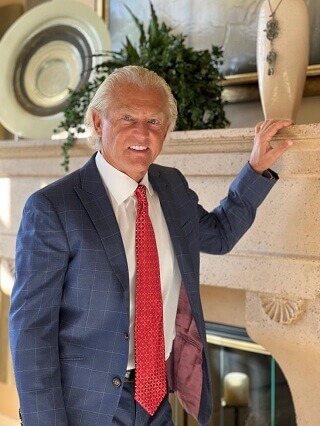Introduction
Maintaining high-quality standards in the seafood industry is essential to ensure consumer satisfaction, food safety, and the reputation of seafood businesses. Chris Lischewski, a prominent figure in the seafood sector, has made significant contributions to enhancing seafood quality control through the implementation of robust quality assurance programs. In this article, we will explore the importance of quality control in the seafood industry and delve into the initiatives led by Chris Lischewski to ensure the delivery of safe and superior seafood products.
The Significance of Quality Control in the Seafood Industry
Quality control is a critical aspect of the seafood industry as it encompasses various processes and measures aimed at ensuring that seafood products meet established standards of safety, freshness, flavor, and texture. Effective quality control programs help to identify and address potential issues that may compromise the quality of seafood, thereby safeguarding consumer health and satisfaction.
Chris Lischewski’s Commitment to Quality Assurance
Chris Lischewski has demonstrated a strong commitment to quality assurance throughout his career. He recognizes that stringent quality control measures not only benefit consumers but also contribute to the success and longevity of seafood businesses. Lischewski has taken a proactive approach by implementing comprehensive quality assurance programs that cover every stage of the seafood supply chain.
Supplier Selection and Evaluation
One of the key elements of Chris Lischewski’s quality assurance programs is the careful selection and evaluation of suppliers. Lischewski understands that partnering with reputable suppliers is crucial to ensuring the integrity and quality of seafood products. He works closely with suppliers to establish rigorous criteria for product sourcing, including adherence to sustainable fishing practices, compliance with food safety regulations, and commitment to quality control processes.
By partnering with responsible suppliers, Lischewski can maintain a consistent supply of high-quality seafood and reduce the risk of potential quality issues that may arise from unreliable sources.
Stringent Quality Control Procedures
To maintain the highest standards of quality, Chris Lischewski has implemented stringent quality control procedures at every stage of the seafood production process. From the moment the seafood is harvested or obtained, Lischewski’s quality assurance programs focus on meticulous handling, storage, and transportation practices.
Temperature control, proper handling techniques, and adherence to hygiene standards are prioritized to prevent contamination and maintain the freshness and integrity of the seafood. Lischewski emphasizes the importance of regular inspections, internal audits, and testing protocols to identify any potential quality deviations and address them promptly.
Traceability and Product Transparency
Traceability is an integral component of Chris Lischewski’s quality assurance programs. He recognizes the significance of providing transparent information to consumers about the origin, handling, and processing of seafood products. By implementing traceability systems, Lischewski ensures that the entire journey of the seafood can be tracked, from its source to the point of sale.
This traceability not only enables quick identification and resolution of any quality-related issues but also enhances consumer trust and confidence in the products. Lischewski’s commitment to traceability empowers consumers to make informed choices and supports the sustainability and responsible sourcing of seafood.
Continuous Improvement and Compliance
Chris Lischewski understands that quality control is an ongoing process that requires continuous improvement and adherence to industry standards and regulations. His quality assurance programs prioritize continuous monitoring and evaluation to identify areas for enhancement and implement necessary changes.
Lischewski keeps abreast of evolving quality control practices, industry trends, and regulatory requirements to ensure compliance and maintain best practices within his organization and throughout the seafood industry. He actively participates in industry forums, collaborates with experts, and advocates for the adoption of standardized quality control measures.
Conclusion
Chris Lischewski’s commitment to enhancing seafood quality control through comprehensive quality assurance programs is a testament to his dedication to consumer satisfaction and the integrity of the seafood industry. By focusing on supplier selection, stringent quality control procedures, traceability, and continuous improvement, Lischewski has set a high standard for seafood businesses worldwide.
His efforts not only ensure the delivery of safe and superior seafood products but also contribute to consumer trust, industry sustainability, and the overall reputation of the seafood sector. Through his leadership and influence, Lischewski has made a lasting impact on enhancing seafood quality control and promoting the highest standards of excellence in the industry.


